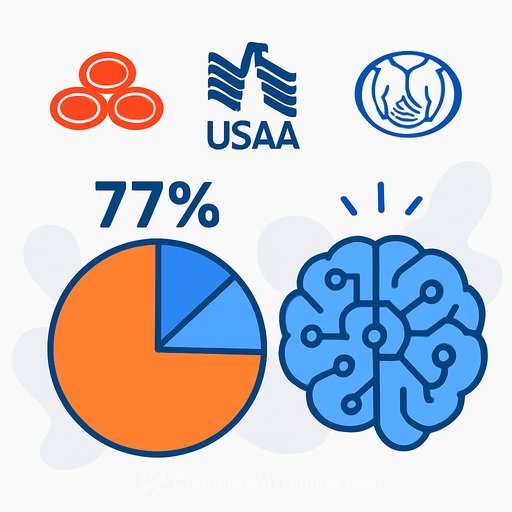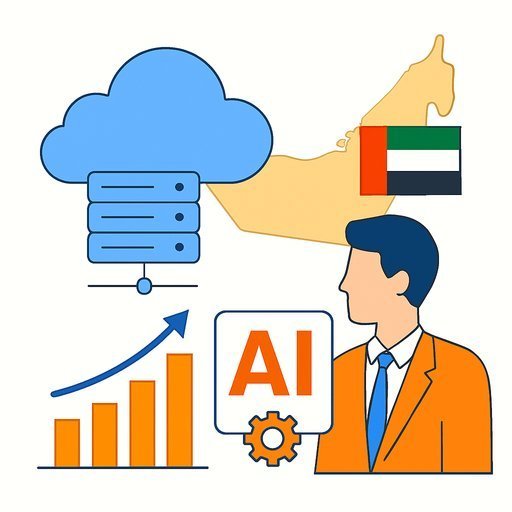AI Adoption and Its Impact on the Insurance Industry
The business landscape is shifting quickly due to advances in technology, changing investment focus, and new economic rules. Recent findings from Bain & Company shed light on how companies and investors are adjusting. For those in insurance, understanding these shifts is crucial to staying competitive and relevant.
AI Search Trends
AI search behavior is changing how consumers find products and services. Data from Sensor Tower shows that ChatGPT usage jumped nearly 70% in the first half of 2025, with prompt volume rising from 17 million to 29 million. Shopping-related queries grew by 25%, highlighting a shift toward AI-driven product discovery.
Click-through rates on ChatGPT links tripled from March to June, signaling that users trust AI more for purchase decisions. For insurers, this means optimizing online presence not just for traditional search engines but also for AI platforms — a strategy known as generative engine optimization (GEO). Focusing on link optimization alongside brand mentions will help capture this growing AI-driven traffic.
Interestingly, healthcare-related AI searches are increasing as users seek help interpreting medical information. This trend hints at rising demand for AI-powered health insurance tools and services.
B2B Software and AI Integration
Artificial intelligence is becoming a must-have in B2B software, especially for sales teams. Bain found that 90% of surveyed commercial executives have scaled at least one AI use case, with top performers using AI for tasks like customizing sales collateral and optimizing contracts.
Firms leading in AI adoption deploy more use cases and achieve almost double the cost efficiencies compared to slower adopters. However, 25% of AI pilots fail, often due to poor data quality or misconfigured tech. This highlights the need for insurers to invest in clean data and proper technology setup to fully benefit from AI.
Venture Capital Trends in AI
While global venture capital funding has softened, investments in AI startups remain strong, particularly in the U.S. This trend shows investor confidence in AI’s potential to transform sectors including insurance.
However, the focus on AI raises concerns about funding diversity. Non-AI ventures may struggle to attract capital, which could impact insurance companies exploring other innovations. Staying informed on funding trends can help insurers plan their innovation strategies effectively.
Challenges in the Insurance Sector
Bain’s analysis points to growing investor skepticism about most insurers’ growth strategies. Many companies have failed to embrace digital transformation, causing trust to decline.
Insurers that are successfully deploying AI and analytics, such as those partnering with advanced data units, show more promise. Using detailed consumer data to create innovative products and services can help rebuild investor confidence and improve market position.
For insurance professionals, this means accelerating AI adoption and focusing on data-driven insights are crucial steps to remain competitive.
Tariffs and the Digital Economy
Rising tariffs are forcing companies to rethink their global operations. The assumption of free flow of goods, capital, and intellectual property is no longer valid.
Insurance companies with international exposure need to assess supply chain risks and adjust strategies accordingly. Being proactive about these changes can reduce disruption and maintain competitive advantage.
Key Takeaways for Insurance Professionals
- Optimize for AI platforms: Prepare for increased AI-driven consumer search and shopping behaviors by improving generative engine optimization (GEO).
- Invest in quality data and tech: Avoid AI pilot failures by focusing on clean data and well-configured technology stacks.
- Leverage AI in core operations: Use AI tools to enhance sales, underwriting, claims processing, and customer engagement.
- Monitor venture capital trends: Understand where funding is flowing to align innovation efforts with investor priorities.
- Adapt to geopolitical shifts: Review global supply chain and tariff impacts on your business models.
Insurance companies embracing these practical steps will be better equipped to grow and gain investor trust in a changing marketplace.
For those interested in deepening their AI skills and applying them in insurance, explore AI courses tailored for professionals that provide hands-on knowledge relevant to the industry.
Your membership also unlocks:






